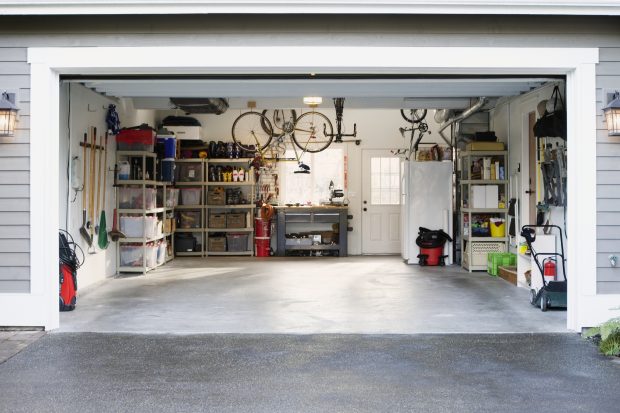If you own a home, or are buying it through the loan process, chances are you make enough money to own a car. Does this mean you need a garage? Should you build one? There are only a few reasons not to add a garage. Here we’ll give you the pros and cons of adding a garage to your home.

Improve Your Comfort and Security
Every time you run from your house to the car in the rain, you would be better off with a garage. The same goes for intense heat, bitter cold, snowy weather, and other climate conditions that make life miserable. The comfort factor looms large when it comes to whether or not to have a garage.
If you have a secure garage, you are more secure every time you go from the house to the car. Perhaps this isn’t a huge issue in your neighborhood, but it definitely makes a person feel more secure to come and go from a secure garage. Just ask anyone who has dealt with car damage and theft issues while parking outdoors at home.
Add a Garage to Protect Your Cars
Your cars are a huge investment. That’s why many consumers have learned to use a down payment calculator before they make their final decision. Even if you didn’t buy them new, a vehicle is worth more to the owner than can be repaid when it is sold.
A new Lexus may cost you $45,000. Do you really want that investment sitting in the sun? Getting rained on by pine needles? Or, getting soaked by rain, hammered by sleet or covered in snow? If you choose new Honda SUVs instead of a luxury car, it is still an investment that deserves to be protected. For that matter, you can get a good deal on certified pre owned cars Scottdale, but you want to protect that car with a garage.
Then there’s the matter of the interior. Wet shoes track moisture and mud. Even dry shoes track in dirt. Opening the door when it’s raining lets in streaming water that can sink down into crevices. Wet seats and carpet can start to smell. It’s just a no-win cycle when you repeatedly access your car without a garage for protection.
Improve your Home Values
Just as a two-bathroom home is more valuable than a one-bathroom home, a home with a garage is more valuable than one without it. For one thing, it implies status. You can bet that wealthy people never have to park their cars in the rain.
For another, it increases your square footage when you sell the home. A prospective buyer may see that area as a possible way to add more rooms, if they aren’t interested in it as a garage.
Dealing with Obstacles
Size limitations, style matters, zoning laws, and the cost can all be strikes against building a garage. You’ll also need to consider the outdoor space you are losing and the current and future length of your driveway with a garage.
To determine how much space you need, consider that a single car needs a 14-foot by 20-foot space. You double that and have a two-car garage. That’s 28 feet by 40 feet, plus extra space to allow for room in between the cars. If you drive one of the new Ford trucks, you may want to consider a larger space with a higher roof to accommodate a big pickup.
Style matters to the extent that you do not want to ruin the look of your home. Beyond that, the style may affect your budget. An attached garage will reduce costs because it provides one wall for the structure. For some, this may be a project you can attempt yourself, but it is smart to be cautious about DIY projects that are this big.
Zoning laws may affect your budget by making demands such as appropriate drainage. A Home Owners’ Association may also affect your decisions, requiring you to place the garage in a certain spot.
At the point where the driveway meets the garage, the driveway needs to be about 14-feet wide for a one-car garage and 20 to 24 feet wide for the entrance of a two-car garage. This may mean an extra expense as you widen the driveway. Then you may want to allow for garage organizational.
Removing trees, bushes and other valuable plants may be needed to build the garage. Other trees and plantings may be in the contractor’s way and become obstacles to construction, unless you agree to have them removed. Any of this can be a deal-breaker for some homeowners.
You should discuss all of this with your contractor in advance to make sure you know what additional expense will be incurred. Furthermore, you should demand that the contractor use access crane mats to protect your driveway and lawn from the weight of trucks and equipment.
When figuring your budget, you need to include every expense. This includes any tree removal as well as special materials such as the garage doors, matching windows, and any other style aspects which add to the cost. You won’t need a plumber, but you will need a contractor who can handle light installation and electrical outlets.
If you are making a budget, you probably should expect to spend a minimum of $12,000 for a one-car garage and a minimum of $19,000 for a two-car garage. The final cost will depend on all of the extras discussed so far. When planning, you should also consider garage techniques such as utilizing the walls and ceiling.
Despite the cost, a garage is definitely an investment that pays off. It improves home values, protects your valuable vehicles, and offers comfort and security to you each day.



